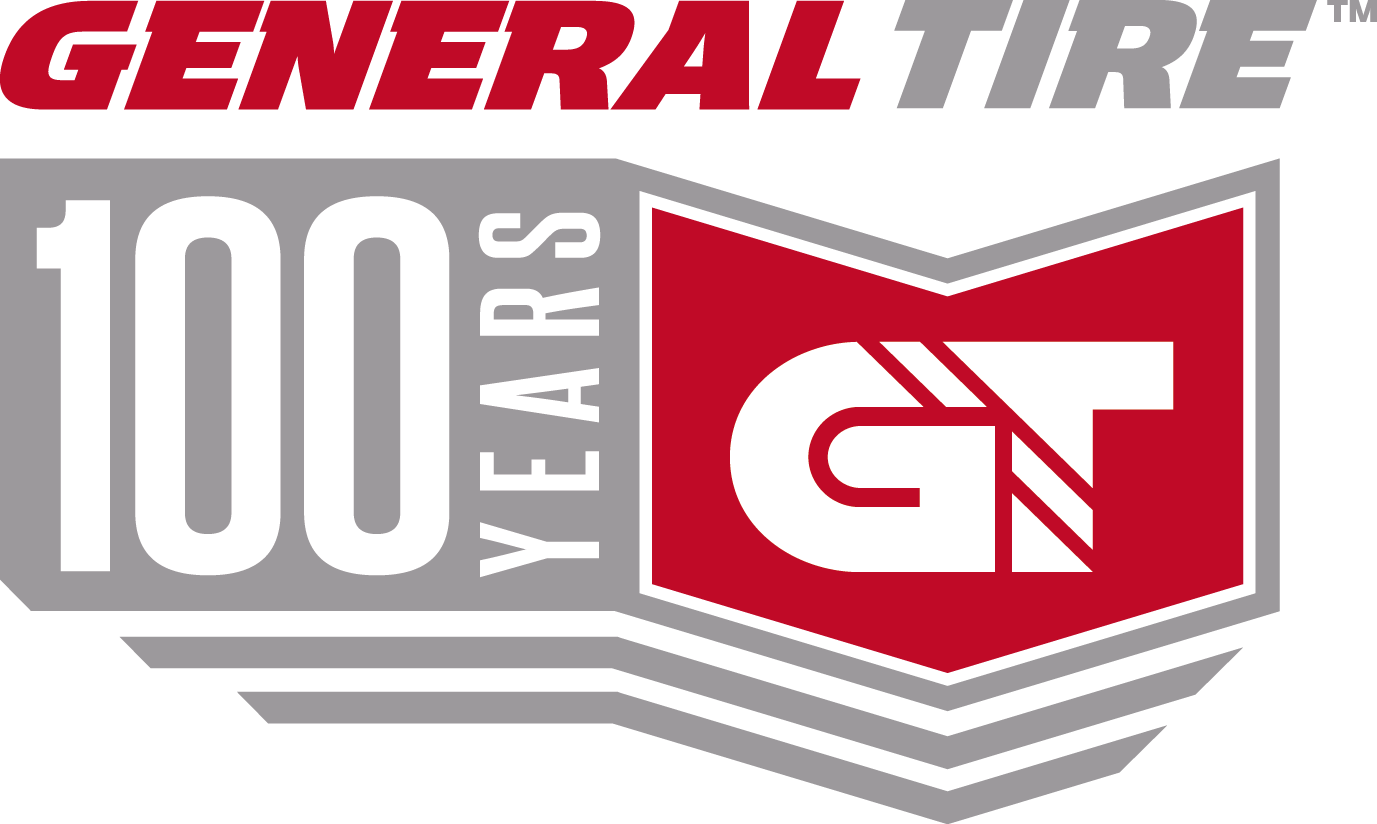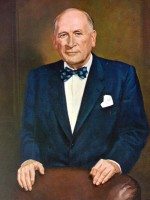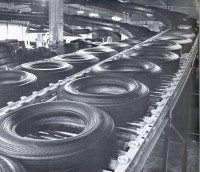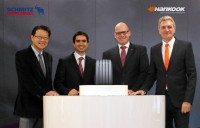General Tire marks centenary year
 To mark the anniversary, General Tire has released a centennial logo
To mark the anniversary, General Tire has released a centennial logo
Happy 100th, General Tire. This year marks the centenary of the brand’s debut, and although it has witnessed a few changes, and changes in fortune, in the past hundred years, the ‘General’ begins its second century in good shape and today boasts a wide range of car, 4×4, truck and industrial tyres.
The brand’s origins lie with William O’Neill and Winfred Fouse, who entered the tyre business on 29 September 1915 – joining some 300 other companies that were making tyres in the US at the time. The two men focused on the truck market and developed an oversized pneumatic tyre called the General Jumbo. This product caught on in a segment accustomed to solid rubber tyres, and with the help of a team of independent dealers spanning the US, the General Tire brand’s success grew. The company then turned its attention to the passenger car market, releasing the General Balloon Jumbo tyre in the mid-1920s. A defining feature of this particular product was its lower, 12 pound operating pressure, which delivered a more comfortable ride than conventional tyres. General Tire rapidly expanded its range, which soon included the high-mileage, puncture-proof Dual Balloon.
As the 1930s dawned, General Tire was the largest truck tyre manufacturer in the USA, with a range that included a full line of pneumatic tyres. At the same time, the company went international with the establishment of a wholly-owned subsidiary in Mexico. Then in 1934, General Tire concluded an original equipment agreement with major commercial vehicle and agricultural machinery manufacturer International Harvester. By the end of the decade, every major US truck producer had approved General Tire as an original equipment supplier.
The company began production at its second facility, a state-of-the-art tyre factory in Waco, Texas in November 1944, and output from the plant helped alleviate the critical tyre shortage the US faced during the Second World War. It also helped build up General Tire’s post-war original equipment portfolio; in 1955, General Motors became the company’s first passenger car tyre original equipment customer. Deals with other major vehicle manufacturers followed, and in the 1960s General Tire opened new factories in Mayfield, Kentucky, Bryan, Ohio and Charlotte, North Carolina to meet growing demand. The firm also built the world’s largest tyre test track in Ulvade, Texas. This opened in 1959. A sixth plant entered service in Mt. Vernon, Illinois in 1973.
However the opening of the Mt. Vernon facility took place at a time when the US automotive industry’s fortunes were changing. The oil crisis and embargo that year helped foreign vehicle manufacturers gain a stronger foothold in the American market, and the introduction of the CAFE fuel efficiency standards didn’t help local car makers much, either. The 1970s and 1980s proved to be the US auto industry’s darkest hour, and while General Tire prospered in the 1970s, by the beginning of the following decade its rivals at Goodyear and Michelin had erected more modern plants than those General Tire possessed; the company closed its original Akron plant in 1983 and the obsolete Waco facility in 1986. The early 1980s also saw widespread strike action in the tyre maker’s US and Canadian factories, and General Tire’s tyre business was performing poorly.
In March 1984, General Tire shareholders approved a change of name, and the company became known as GenCorp Inc, a title that reflected the firm’s growing activities outside the tyre sector. Its tyre business retained the General Tire name. Three years later, an investor group operating under the name of General Partners offered up to US$110 for each GenCorp share in an all-cash hostile takeover bid, a manoeuvre that was ultimately staved off by the sale of the General Tire business to Germany’s Continental AG. So far so good for the General Tire brand, however nobody knew at the time that Continental’s acquisition would be followed by almost two decades of poor decision making.
Following a thorough examination of its new assets, Continental’s board members described General Tire as a “cashed out company”, its factories as “ramshackle” and machinery as “scrap”. In the following years General Tire was upended and set back on its feet again numerous times and leadership changes constantly made until finally the bleeding could, to a degree, be stemmed. Between 1987 and the early 2000s, General Tire experienced nothing but seven, eight and nine-figure losses, and management in Germany were over the moon each time the company appeared to at least be heading towards the black.
It was first in 2006/2007, 20 years after Continental’s acquisition of General Tire, that a change was seen, and it only came after most General Tire factories in the US were decommissioned. Of the company’s six former plants, only the Mount Vernon facility now remains in operation, and today it produces over three million General Tire brand tyres a year. The Uvalde test track has become Continental Tire the Americas’ main North American test facility.
Having left these problem years behind, Continental Tire the Americas now manufactures a broad portfolio of tyres under the General Tire name, and the brand is alive and well in numerous global markets.
- William O’Neill, co-founder of General Tire
- A General Tire production line in the 1950s
- To mark the anniversary, General Tire has released a centennial logo






Comments